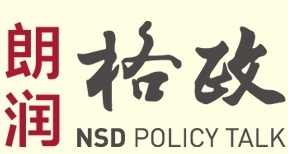-
大陆成人直播
-
- 大陆成人直播
- WORKSHOP预告
【朗润●格政】讲座:长期资本的崛起:中国对拉美发展融资的政治经济学
发布日期:2017-11-15 03:26 来源:大陆成人直播-成人直播中文

第97次【朗润●格政】讲座
The 97th NSD Policy Talk长期资本的崛起:中国对拉美发展融资的政治经济学
The Rise of Patient Capital: The Political Economy of Chinese Finance in Latin America
主讲:Stephen Kaplan教授
乔治华盛顿大学艾利尔特国际关系事务学院政治学与国际事务副教授Presenter: Stephen Kaplan
Associate Professor of Political Science and International Affairs, Elliott School of International Affairs, George Washington University
评论:孔涛教授
北京大学中国社会科学调查中心副教授
Commentator: Professor Sherry Kong
Associate Professor, Institute of Social Science Survey, Peking University
讲座语言:英文
Language: English
2017年11月15日 15:00-16:30
15:00-16:30, 15 November 2017
大陆成人直播-成人直播中文 致福轩大教室
Zhifuxuan Classroom, National School of Development, Peking University
【Abstract】
Globalization scholars have long-debated to what extent economic integration, and, specifically mobile private capital, constrains national policy-making. With Western capital reeling from the 2008 financial crisis, state-owned capital made considerable inroads globally. China, as the world's largest saver, expanded its cross-border lending, funneling almost US$300 billion to developing countries. What are the implications? Could nations that have long-struggled with the intractability of poverty and inequality more readily expand the state to off set market inequities?
I contend that China's state-led capitalism is an important form of patient capital, characterized by a longer-term horizon. While technically classified as mobile capital, its higher risk tolerance and geopolitical shrewdness make state-owned capital less likely to swiftly exit debtor countries. Debtor governments gain more policy freedom, particularly during hard times when Western creditors might otherwise impose onerous policy conditions. Employing cross-national data across 17 Latin American countries from 1990-2015, I find that Chinese state-to-state lending reduces governments' reliance on conditionality-linked Western financing, giving them more autonomy to use budget deficits to intervene in their economies. These findings offer important new insights for the study of globalization, Latin American development, and China-Latin American relations, helping explain the conditions under which nations veer from Western governance models.
【Introduction of Presenter】

Stephen B. Kaplan is an Associate Professor of Political Science and International Affairs. Professor Kaplan's research and teaching interests focus on the frontiers of international and comparative political economy, where he specializes in the political economy of global finance and development, the rise of China in the Western Hemisphere, and Latin American politics.
Professor Kaplan joined the GWU faculty in the fall of 2010 after completing a postdoctoral research fellowship at the Niehaus Center for Globalization and Governance at Princeton University and his Ph.D at Yale University. While at Yale, Kaplan also worked as a researcher for former Mexican President Ernesto Zedillo at the Yale Center for the Study of Globalization. Prior to his doctoral studies, Professor Kaplan was a senior economic analyst at the Federal Reserve Bank of New York, writing extensively on developing country economics, global financial market developments, and emerging market crises from 1998 to 2003.
Kaplan is currently working on his second book manuscript, Neoliberalism in Retreat? The China Boom in Latin America (under contract with Cambridge University Press), which aims to evaluate the political and policymaking implications of growing Chinese economic interdependence in the Western Hemisphere. For the 2014-2015 academic year, Professor Kaplan received an external grant from the Smith Richardson Foundation to advance this book project.
报名链接://nsd.huodongshu.com/event/10048895/?is_easy=2
大陆成人直播 官方微信
Copyright© 1994-2012 大陆成人直播-成人直播中文 版权所有, 京ICP备05065075号-1
保留所有权利,不经允许请勿挪用


